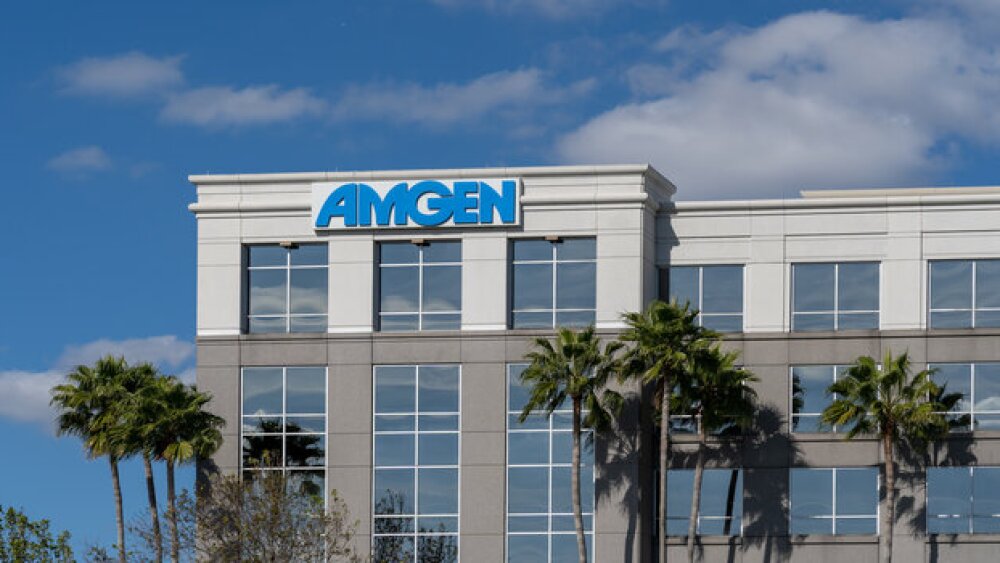Under a consent order agreement announced Friday, Amgen is prohibited from bundling any of its products with Horizon’s Tepezza or Krystexxa, allaying the FTC’s primary concerns.
Pictured: Amgen’s Tampa, Florida office/iStock, JHVEPhoto
The biggest biotech deal of 2022 will move forward after the Federal Trade Commission announced Friday it has reached an agreement with Amgen to allow the $27.8 billion acquisition of Horizon Therapeutics to proceed.
The FTC filed a lawsuit in May 2023 attempting to block the buyout. Then, last week, the agency temporarily suspended the lawsuit in a move that would allow it to “consider whether [it] should settle the case,” according to an Aug. 25 filing reported by Reuters.
At the heart of the FTC’s lawsuit was the contention that the acquisition would enable Amgen to pressure pharmacy benefit managers (PBMs) into favoring Horizon’s thyroid eye disease (TED) and chronic refractory gout (CRG) products—Tepezza and Krystexxa—through rebates on its own drugs, such as Enbrel, which is used to treat various autoimmune diseases. In its lawsuit, the FTC said this could result in “raising Tepezza rivals’ barriers to entry and dissuading competition.”
For its part, Amgen has maintained that it “has no reason, ability or intention” to bundle Tepezza or Krystexxa with any of its products, a claim it reiterated in its own statement on Friday announcing the consent order agreement.
As part of the agreement, legal action from the attorneys general of California, Illinois, Minnesota, New York, Washington and Wisconsin will also be dismissed.
Under the proposed consent order agreement, Amgen is prohibited from bundling any of its products with Tepezza or Krystexxa, and “may not condition any product rebate or contract terms related to an Amgen product on the sale or positioning either one of these drugs,” according to the FTC’s announcement. Amgen is additionally “barred from using any product rebate or contract term to exclude or disadvantage any product that would compete with Tepezza or Krystexxa.”
Amgen will also be prohibited from acquiring any products—including pre-commercial products that have completed FDA-sanctioned trials—or interests in a business that manufactures or sells products, biosimilars or therapeutic equivalents that treat TED or CRG without prior approval from the FTC. For pre-commercial products, Amgen must seek pre-approval through 2032. All other agency requirements are valid for 15 years.
In its announcement, Amgen said the consent agreement “clears the path to take the final steps to close” the buyout. “Amgen and Horizon will quickly seek the final approvals required under Irish law to close the acquisition,” the statement continued. The companies anticipate closing the deal early in the fourth quarter of 2023.
Following the announced agreement, Andrew Pannu, a biotech executive who is currently working on a stealth startup and has a background in investment banking, private equity and corporate development, said the case signals that the FTC under the Biden administration is taking a hard look at rebating practices in the industry.
“Three payers—Optum, CVS Caremark, Express Scripts—manage greater than 80% of scripts and there’s a lot that’s been written about [how] they’ve been a net negative on industry transparency and drug prices,” Pannu told BioSpace in an email.
Heather McKenzie is a senior editor at BioSpace. You can reach her at heather.mckenzie@biospace.com. Follow her on LinkedIn and Twitter @chicat08.






